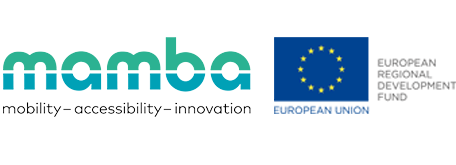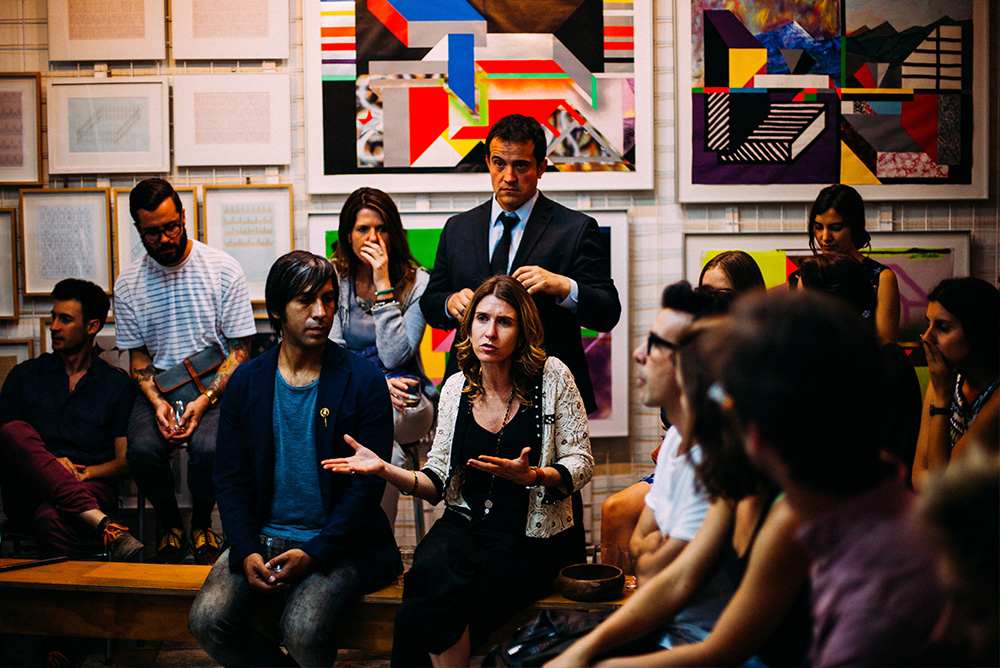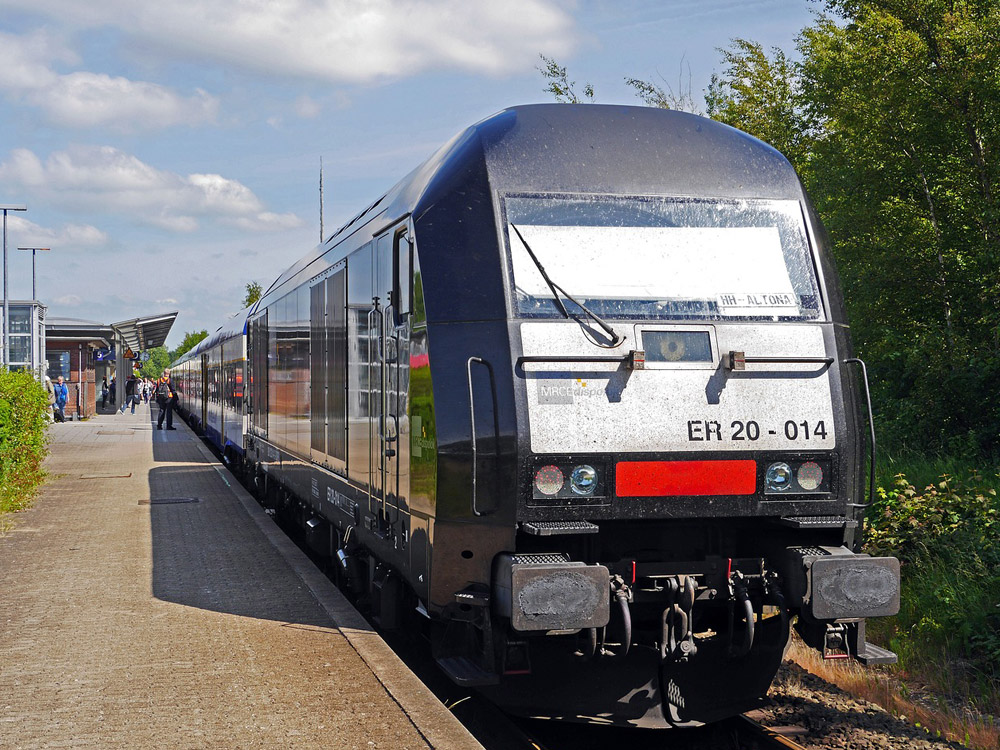Interview with Doris Scheer, project leader for Mamba.
Doris Scheer is the Project Leader for Mamba and represents the Diakonisches Werk Schleswig-Holstein. Hear some of her thoughts on the project here below!
The Diakonisches Werk Schleswig-Holstein is a Christian welfare organization affiliated with the Evangelical Church in Germany. As roof organization, the Diakonisches Werk S-H represents its members and their diaconal work and activities vis-à-vis the State, the regional government and bodies, which are responsible for financially resourcing diaconal work.
The Diakonie in general offers social services of a great variety such as services for children and young people, the elderly, migrants, unemployed people, people with physical or mental handicaps for instance, and as welfare organisation, the Diakonie is active in most fields of social policy. This short description points to the different roles, which the Diakonisches Werk Schleswig-Holstein holds: it is a service provider, an advocacy organization and an employer.
Why is Mamba a relevant project for your region, and for the BSR?
Schleswig-Holstein is a rural area and can still be characterised as mainly agricultural with small local craft and trade businesses. It shares with many similar areas around the Baltic Sea the impact of globalisation and demographic change, which often result in outward migration, lack of a skilled workforce, dwindling public and private investments and a reduction of the service infrastructure.
No or limited access to mobility is an additional feature on this negative list which many areas have to face. Even if mobility options are available, often they are not known, more often they are badly connected, without cross-municipal and cross-transport company reach. This is where MAMBA’s Mobility Centres find their crucial role: they are supposed to function as roofs and coordinating units of diverse mobility opportunities, support users in finding their individual paths to the best fitting mobility option and to sensitise stakeholders and mobility actors (transport companies and others) for changing mobility demands of their users. User needs are relevant sources of information in order to improve services. Pilots will demonstrate how these needs can effectively be turned into sustainable and innovative mobility models, accepted by users and providers.
Innovative and integrated mobility approaches, which offer new models of people-to-service and service-to-people mobility and the combination of both, are essential for boosting the economic, cultural and environmental potential of rural areas in particular. Furthermore, they directly affect the quality of life of citizens living in rural and remote parts of the Baltic Sea region. Improved accessibility to services is a core dimension of people’s quality of life.
The project involves partners from many countries, with different conditions, laws and regulations. Which is the biggest challenge with the project? How can you overcome it?
There are many challenges in a transnational project with a high level of complexity and diversity such as MAMBA. As partners, who are rooted in different national contexts around the Baltic Sea, we not only have different historical, lingual, cultural and juridical framings, but we also represent a diversity of organisations with their own specific work cultures, decision-making processes, agendas and time schedules. One major challenge is to establish structured and informative communication routines with and between project partners – an absolute MUST for constructive project work.
Mobility is organised in different settings, depending on the territorial location of MAMBA partners. Pre-studies focussing on legal and socio-economic factors as well as on individual and collective barriers, which may prevent the implementation of innovative mobility models, are carried out right now at the beginning of MAMBA’s project work. These studies will point out the differences in organising mobility, but more so they are supposed to help identify commonalities and to ease the way into the practical implementation of mobility centres and pilot activities.
I am very optimistic that we shall master the challenges, which MAMBA will bring along – because we are a highly motivated group of experts who have engaged in a collective transnational learning process in order to develop, test and evaluate innovative mobility solutions. We are enthusiastic about contributing to a sustainable future in the Baltic Sea region sharing our project results and insights with partners beyond the MAMBA project context and even beyond the Baltic Sea region.
What do you, as lead partner, hope to achieve with the project?
As Lead Partner, I obviously hope to see lasting effects of our work at the end of our MAMBA project life-time: a database as a knowledge pool for communities, stakeholders and transport companies interested in innovative mobility models; seminars and study visits to engage with experience of already existing mobility solutions; a mobility manual and compendium to address grass-roots initiatives and stakeholders alike and to sensitize them for changing mobility demands and innovative approaches. I hope that MAMBA will succeed in establishing Mobility Centres as sustainable strategic networks in rural areas because I am sure that unusual, innovative mobility ideas need this creative ferment in order to develop.
Viewing MAMBA from my own professional background, I hope that mobility will be recognized as a decisive factor for exclusion / inclusion – in particular when I think of vulnerable people who are in need of services. Restricted accessibility to mobility is directly linked to accessibility of social and medical services, cultural and educational activities, participation and the social capital of individuals and communities. I am sure that MAMBA will increase awareness for differentiated mobility needs analysis and for increased service-to-people mobility innovations.
The project started last summer, how far have you come?
The project implementation actually started on 1st October 2018. We had our first transnational project partner meeting in Neumünster / Germany in November. As already mentioned, in the MAMBA partnership people with different professional backgrounds, skills and competences join together in order to generate innovative mobility approaches. It is essential that project meetings offer the opportunity, particularly at the beginning, to get to know each other: to learn, to listen, to share, to communicate. Of course, we did ‘serious’ work, too.
Apart from organisational matters, which need to be clarified at the beginning of any project, we used this opportunity to outline the pre-studies, discuss ideas for mobility pilots of various partners, move towards a reference frame for mobility centres and collected ideas for our project logo, communication products and our MAMBA website. All project partners are eagerly engaged in their actual project tasks, in designing questionnaires, collecting data and information, carrying out interviews, designing a database structure, conceptualising pilots and much more.
Tell us a little about what’s next!
We are getting ready for a second project partner meeting in Joensuu / Finland where we share our results so far and enter into more detailed work on mobility centres, their structure and practical implementation. Mobility seminars and their design will be also on our agenda because these seminars will be an excellent opportunity to learn and benefit from already existing mobility experiences in the areas where MAMBA partners are rooted and, on top, to engage with a wider audience of associated project partners and relevant stakeholders. Our MAMBA website will be hosted in the near future and project partners will actively feed in information about the range of activities, which they are planning to carry out on the local and regional level.







